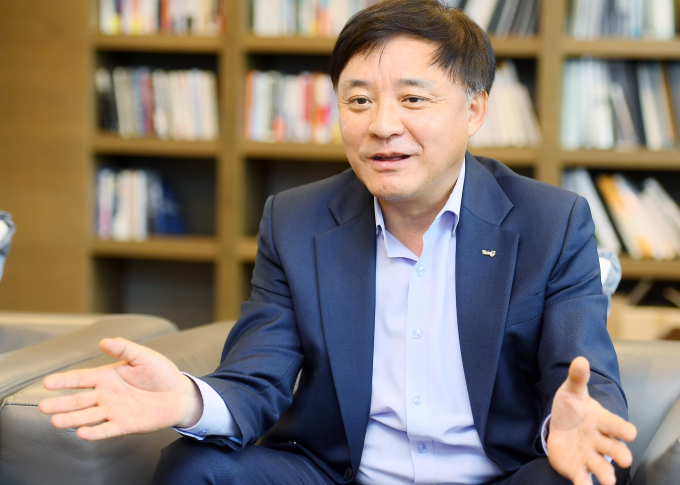Pension funds
Korean Teachers’ Credit poised for best return since 2010
Dec 14, 2020 (Gmt+09:00)
2
Min read
Most Read
LG Chem to sell water filter business to Glenwood PE for $692 million


Kyobo Life poised to buy Japan’s SBI Group-owned savings bank


KT&G eyes overseas M&A after rejecting activist fund's offer


StockX in merger talks with Naver’s online reseller Kream


Mirae Asset to be named Korea Post’s core real estate fund operator



The Korean Teachers’ Credit Union (KTCU) is on course to post its strongest investment return in a decade of around 9%, driven by double-digit returns from equities markets, according to the retirement fund on Dec. 14.
As of the end of November, the 34-trillion-won ($31 billion) savings fund reported an 8.4% return on investment, more than double its earlier 4% target for this year and compared to last year’s 6.9%.
For the whole year of 2020, its return is expected to rise close to its 2010 level of 9.0%, reflecting the extended bull runs in both domestic and overseas stock markets, a KTCU spokesman told The Korea Economic Daily. But he added that year-end numbers are subject to accounting variables and foreign exchange rates.
The estimated 9% return will likely translate into 2.5 trillion won ($2.3 billion) in proceeds, the Maeil Business Newspaper reported on Monday. KTCU's assets under management are projected to grow by 5.3 trillion this year.
By asset class, domestic equities generated a 25.7% return as of the end of last month, with returns from both domestic and overseas alternatives averaging 6.6%.
With equities making up 20% of its portfolio, KTCU has increased exposure to the semiconductor and rechargeable battery sectors, as well as to companies seen as benefiting from social distancing trends.
From alternatives, it realized a 67% return from the exit of Ellie Mae, a US cloud-based platform provider, in September.
But the steep appreciation of the won against the dollar eroded its global investment returns, limiting returns from overseas alternatives to the 4-5% range, the spokesman said.
Overall, KTCU maintained a cautious stance on alternative investments, focusing on private debt and structured products with guaranteed returns.
KTCU will further boost exposure to equities markets and M&A financing deals as the prolonged economic slowdown is expected to force companies to offload marginal businesses and non-core assets, its Chief Investment Officer Kim Ho Hyun told The Korea Economic Daily in an October interview.
Thanks to the bullish stock markets, other major pension funds in Korea, including the Teachers’ Pension and the Public Officials Benefit Association, also look set to beat their 2020 target returns, which ranged between 2.5% and 4.2% by the year’s end.
Meanwhile, the National Pension Service, the world’s No. 3 pension scheme, posted a 4.17% return this year as of the end of September.
Yeonhee Kim edited this article.
More to Read
-
 Real estateMirae Asset to be named Korea Post’s core real estate fund operator
Real estateMirae Asset to be named Korea Post’s core real estate fund operatorApr 29, 2025 (Gmt+09:00)
-
 Asset managementMirae Asset bets on China as Korean investors’ US focus draws concern
Asset managementMirae Asset bets on China as Korean investors’ US focus draws concernApr 27, 2025 (Gmt+09:00)
-
 Alternative investmentsMeritz backs half of ex-manager’s $210 mn hedge fund
Alternative investmentsMeritz backs half of ex-manager’s $210 mn hedge fundApr 23, 2025 (Gmt+09:00)
-
 Real estateRitz-Carlton to return to Seoul, tapped by IGIS Asset for landmark project
Real estateRitz-Carlton to return to Seoul, tapped by IGIS Asset for landmark projectApr 22, 2025 (Gmt+09:00)
-
 Real estateS.Korean gaming giant Netmarble eyes headquarters building sale
Real estateS.Korean gaming giant Netmarble eyes headquarters building saleApr 18, 2025 (Gmt+09:00)
Comment 0
LOG IN


